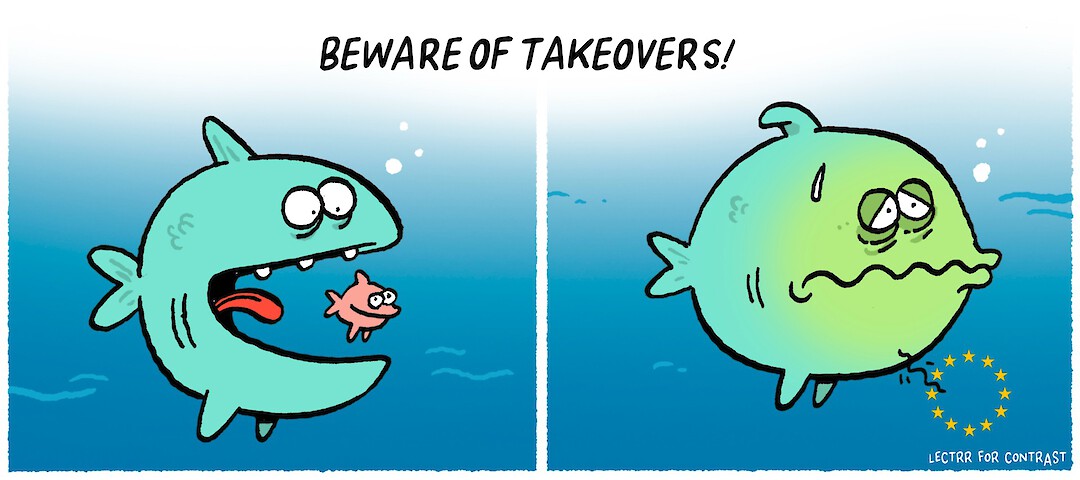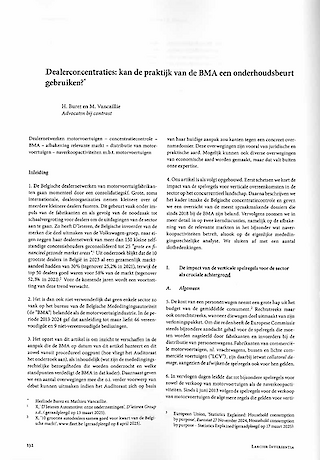In the Picture

Anyone in for some more legal uncertainty for acquisitions?
April 2023Imagine…
You happen to be the biggest soft drinks producer around, and you’ve just acquired a company in Germany that makes organic soft drinks. Your product line didn´t feature such a beverage until now, and to strengthen your position on the market you needed to find just such a producer... No sooner said than done!
The acquisition did not have to be notified to the European Commission or the German Competition Authority: the revenue figures of the local producer were low enough not to exceed the notification thresholds on either the EU or national level. Hence you were delighted when your in-house counsel told you that you could proceed with the takeover right away. Experience has taught you that such a notification procedure can take a great deal of time...
But even before you have a chance to celebrate the acquisition, your phone starts ringing off the hook. The day after sending out the press release proudly announcing the acquisition, the German Competition Authority informs you that it started an investigation into possible abuse of dominant position.
Abuse of dominant position? You nearly fall out of your chair: the acquisition didn’t even have to be notified! This can´t be possible - or can it?
A brief clarification.
The European Court of Justice recently delivered its judgment in the Towercast case.
The occasion for this judgment was an acquisition in the French telecom sector. The acquisition did not have to be notified in advance. After the acquisition, however, a competitor - Towercast - filed a complaint with the French Competition Authority alleging that the acquisition amounted to an abuse of dominant position. The French Competition Authority rejected the complaint, after which Towercast appealed the matter to the Court of Appeal of Paris. The latter turned to the European Court of Justice for a preliminary ruling on whether a national competition authority can determine that an acquisition constitutes abuse of dominant position even if said acquisition did not have to be notified.
The Court of Justice responded that it is not excluded that an acquisition which did not have to be notified in advance might nonetheless constitute an abuse of dominant position.
And with this the Court has created additional concerns for dominant companies on the acquisition path.
That a dominant company strengthens its position is not per se sufficient for the acquisition to be deemed abusive. For a finding of abuse it must be established that “the degree of dominance thus reached would substantially impede competition, that is to say, that only undertakings whose behaviour depends on the dominant undertaking would remain in the market.”
The Court’s judgment has not been without consequences. Less than a week after the Towercast judgment, the Belgian Competition Authority announced that it started an investigation into a possible abuse of dominant position by the incumbent telecom player Proximus, within the framework of its takeover of EDPNET. This acquisition did not have to be notified to the Belgian Competition Authority due to EDPNET’s limited turnover. Moreover, EDPNET was insolvent and, within the context of an insolvency proceeding, the court had approved the transfer of EDPNET’s activities to Proximus.
Dominant companies with acquisition plans are hereby forewarned: even if their acquisition of a small player must not be approved in advance by the competition authorities, they can still be accused of abuse of dominant position later on.
Concretely.
- Always verify whether your acquisition must be notified in advance to the European Commission or to one or more national competition authorities.
- Even if that is not required: if you are dominant, examine together with your legal advisors whether there might still be an abuse of dominant position.
- This could be the case when the behaviour of the remaining players on the market depends on you.
- Precisely what this test entails must be evaluated on a case-by-case basis, thus generating legal uncertainty for dominant companies.
Want to know more?
- You can find the judgment of the Court of Justice of 16 March 2023 in the Towercast case here.
- You can find the press release of the Belgian Competition Authority on the investigation into a possible abuse of dominant position on the part of Proximus within the framework of the acquisition of the activities of EDPNET here.
Please consult our website or contact one of our team members if you have questions or require more information:













